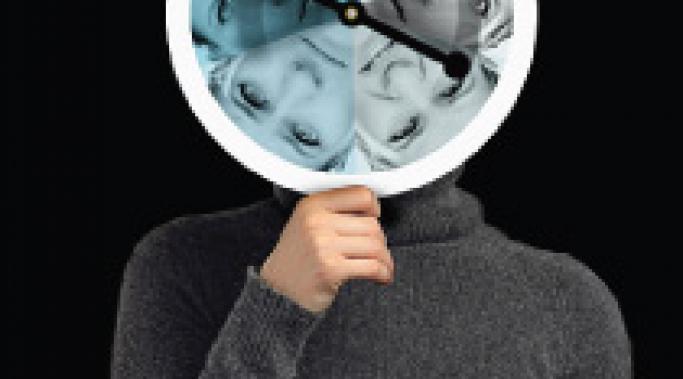Blogs
The good news is there is hope. BPD is treatable. However, it is useful to know if you fall into a subtype in order to better communicate with your mental health professional. You may not know where you fall, and you may not fall into one of those categories--that's okay. What's important is that you understand your diagnosis, in order to improve the outcome of treatment.
This afternoon, I submitted Bob's draft 504 plan to the school counselor (who serves as their IEP/special ed coordinator). Now, I suppose we sit back and see what comes next.
My wife recently left a note by the bed that hit me right between the eyes. And it hurt.
“I’m not sure what is going to make you better, maybe nothing,” she wrote. “I’m not sure what else there is out there to try. Right now, I feel like we are back in a bad place, and I am finding myself exhausted and apathetic.”
It got worse.
Bipolar disorder is an affective disorder, in other words it affects your emotions (among other things). Bipolar disorder symptoms are often about feelings. Well, they're about FEELINGS. I feel HAPPY. I feel SAD. I feel IRRITATED. I feel ENERGETIC.
But one thing that's rarely recognized is that sometimes bipolar disorder is about feeling nothing at all.
I’m a good goal setter. I see it as a way to challenge myself and keep things interesting. A bit like playing a game and figuring out which hoops I need to jump through to get to the prize. Sometimes I stick to these new resolutions…too often I don’t.
I always have the best intentions, but I confess I haven’t always gone past this initial phase into taking the steps needed for success. This year I made a promise that it would be different. This time, I’d reach the prize.
Communication in abusive relationships is like communicating with someone who cannot see or hear you and knows no word that describes the idea of someone who isn't me. When your abuser talks at you, they are talking to themselves.
Communication in abusive relationships is an all or nothing fight to the finish. Whether you're discussing the shade of towels for the guest bathroom or what elderly care facility Aunt Polly needs, the abuser expects you to say what s/he would say. Nothing more, nothing less, and definitely nothing different.
The only one who will ever attempt real communication in abusive relationships is you.
The diagnosis of mental illness is akin to being hit by a bulldozer. But you survive and work to carry on--to recover. It can be hard, while in the midst of things, to forget the people who have stood by our side. The people who we might have hurt when we were sick.
My Experience
I enjoy reading posts that mention the authors personal experience--it makes it real. It makes the person real. So, let me summarize twenty-six years:
Diagnosed at 12, I have been blessed with a family who never left my side, despite mental health professionals telling them to put me 'in a home.' I am their child and they could not fathom doing this. As I grew up and addiction engulfed my life, they pulled away out of necessity, quite literally waiting for me to die. I have two siblings and they needed my parents just as much as I did.
They could have given up. Many parent's do...but they waited. Waited for me to hit bottom, and bottom I did, before reclaiming my life. When I was sick, I did not understand the sacrifices they made. I did not recognize the effect my illness had on their lives, my siblings--the family dynamic. I felt angry. Alone. Unloved. Like the black sheep.
As I became better, I realized that I owe much of my life, the fact my heart is beating as I write these words, to them. I am able to express my feelings to them now, but not without guilt.
Working Through the Guilt and Embracing Those Who Love You
I began writing neither for money nor fame, but simply because I thought I had a message to send to the world. I believed that many of the horrible events that had transpired in my life, were not without purpose. That my experiences with schizophrenia and homelessness were not in vain, but brought about with reason. This is what brings me here to you now, as a writer and advocate, who knows what it is like to be neither here nor there, both materially and mentally. What follows is the path I took to send this message. Here are the publications I have written and my inspiration behind them.
Well, it looks as if SAMHSA has redefined the term: Recovery.
ScienceDaily (Jan. 5, 2012) — A new working definition of recovery from mental disorders and substance use disorders is being announced by the Substance Abuse and Mental Health Services Administration (SAMHSA).
The new working definition of Recovery from Mental Disorders and Substance Use Disorders is as follows: A process of change through which individuals improve their health and wellness, live a self-directed life, and strive to reach their full potential.
So, what do you think?
Ben has been "in recovery" since late in 2003, after his medication regime was stabilized and deemed effective. We cross our fingers each and every day that the psychiatric medications continue to work, and that he continues to take them despite his feeling that he doesn't need to.
And so it goes.
I am at an impasse, with my writing and with my feelings. Of course, these issues are related.
Last month, I began writing here about mending my relationship with my ex-boyfriend Bob, and we've been getting along very well in the meantime. We've reached a point of sharing that is different than at any time in our past: I've been able to share my feelings - past and present - with Bob and he has admitted a level of honesty I never expected from him. I was very happy, until I sought to write a long piece about our relationship for my personal blog and I couldn't come up with a way to tackle the topic. That's when I knew that I had some negative reactions mixed in with my warm fuzzies.









